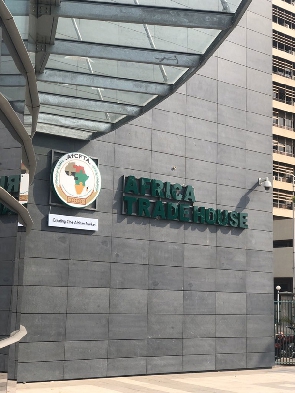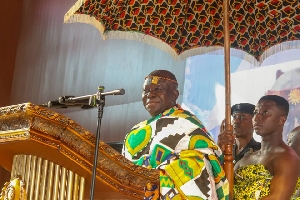Business News of Thursday, 9 July 2020
Source: GNA
AfCFTA plan to ride out crippling coronavirus crisis - Vera Songwe
Africa has a more robust tool in the African Continental Free Trade Area (AfCFTA) to use in accelerating regional and economic integration and prepare for uncertain times like the COVID-19 pandemic, Dr Vera Songwe, Executive Secretary of the Economic Commission for Africa (ECA) has said.
She said Africa did not need a Marshall Plan to ride out the ongoing coronavirus crisis as the AfCFTA is readily on hand to ride out the crippling novel coronavirus.
Dr Sognwe said these in a virtual panel discussion to mark the inaugural Africa Integration Day that was set aside by the African Union to mark the implementation of the AfCFTA, monitored by the Ghana News Agency.
“We need to talk about Africa and the AfCFTA. Our Marshall Plan is the AfCFTA. The AfCFTA is our plan so let us take it and run with it,” she said.
Ms Songwe said with the AfCFTA, Africa had collectively penned its own blueprint for growth.
“The Marshall Plan for Europe was about 160 per cent of their GDP traded to bring back growth after the war. What happened to us is that we were all waiting for a health crisis but we got an economic crisis first which was very steep, very deep, not just for us but for the rest of the world,” she said.
Ms Songwe said the ECA estimated that economic growth in Africa in 2020 will drop from 3.2 per cent to negative 2.8 per cent to about zero per cent growth as a result of COVID-19, a situation she described as disastrous, throwing an extra 20 million people into poverty in a continent where almost 300 million people cannot afford one meal a day.
“COVID came and has taken us quite far behind because we need to reassess where is it that we want to go and how we want to go. We definitely need to do things differently,” she said.
Ms. Songwe added that it was crucial for Africa to integrate its financial systems to create a mutualised system of financial stability that works for the continent or regional monetary cooperation as in East Asia.
“The Afreximbank Exchange Facility is an excellent step in the right direction. But more is needed to integrate our economies and financial sectors,” the Executive Secretary said.
This means “when there is a crisis we come together and we pull and mutualise our resources so that those who are the most hit get some resources.”
“So we do not need to go the long distance of common currency to get a mutualised system of financial stability that works for the continent. We need to ensure that as we build the AfCFTA and trade integration, we begin to build stronger, much more robust monetary and fiscal systems that can ensure that as a continent we actually can work with each other in a more effective way,” Ms. Songwe added.
Ms. Songwe said COVID-19 gave Africa an opportunity to assess its weak health delivery systems with countries like South Africa, Ethiopia, Morocco and others building new health infrastructure.
Africa must produce internally, said Ms. Songwe. The continent imports $14.7 billion worth of drugs, over 95 percent of its demand. She said countries like Egypt, Kenya, South Africa, Ethiopia and Cameroon can produce drugs for the continent, adding what needed to be worked on was Intellectual Property Rights issues.
The ECA Executive Secretary was joined on the panel by Mr. Mukhisa Kituyi, Secretary-General of UNCTAD; Professor Benedict Okey Oramah, President of the African Export-Import Bank (Afreximbank); Mr. Wamkele Mene, first Secretary-General of the AfCFTA; Mr. Chileshe Mpundu Kapwepwe, Secretary-General COMESA; and Mr. Paolo Gomes of AfroChampions.
The panellists agreed that the AfCFTA was the best stimulus for Africa to come out of the COVID-19 pandemic.
They also agreed the crisis was a great opportunity the continent should not waste, in particular using lessons learned for Africa’s industrial development; produce its own drugs and save billions of dollars in the process; digital inclusion is paramount; and working closer together than ever as one united Africa with the private sector too, among others.













